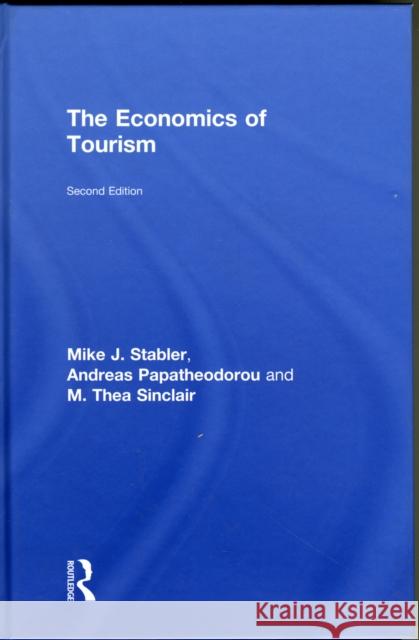The Economics of Tourism » książka
The Economics of Tourism
ISBN-13: 9780415459389 / Angielski / Twarda / 2009 / 508 str.
This new edition of The Economics of Tourism reflects the tremendous changes that have occurred in the tourism sector in the last twelve years. It recognizes that the nature of tourism demand and supply is being transformed by innovations in information communication technologies, market liberalization and climate change. Paralleling this, there is much greater interest in the study of tourism by both students and researchers in mainstream economics. The text is now in four parts covering: demand; supply; national, regional and international matters and environmental issues. The concluding chapter appraises the state of the economic research into tourism. The increased interest in tourism has engendered the development of new methods of analysis and the refinement of established ones. Accordingly, the book has been extensively restructured, revised and expanded with two new chapters: chapter six of the first edition is now broken down into two and a new chapter has been added on environmental issues to take account of new developments, critically review the associated literature and consider future trends in tourism economics research. The reader-friendliness of the book has also been enhanced in various ways, such as the extensive chapter cross-referencing to refresh the reader's memory and the inclusion of a detailed list of abbreviations. The Economics of Tourism will continue to make accessible for the non-specialist, the application and relevance of economics to tourism. Extensively revised and updated, including research and case studies the textbook will be an indispensable resource for both students and researchers.
While retaining its original approach of a rigorous explanation of the application and relevance of economics to tourism comprehensible to the non-specialist reader, the new edition is in a more accessible format and has been extensively revised to incorporate the latest research and current issues from an economics standpoint. Innovations in information technology, the advent of the Worldwide Web, economic globalisation, developments in international trade and the growing importance of environmental impacts and policies have been analysed with respect to their influence on demand for and supply of holidays, among others covering reservations, financial transactions methods, attractions, accommodation, travel modes. Therefore wo new chapters have been added on macroeconomic, international elements and global environmental issues in tourism. More and updated case studies have been included with commentaries on their implications for the culture, economies and social structures of host countries, with particular reference to developing ones.
The structure of the first five chapters, concerned with basic economic analysis, will be largely unchanged covering: the relevance of economics to the analysis of tourism; demand theory; consumer behaviour; tourism supply and its market competitiveness and the structure, performance and strategies of tourism firms. Two chapters will consider the local and regional effects of tourism in host locations. The first analyses income and employment generation and their impact on workers’ migration, economic growth and policies. This is followed by a chapter examining international trade theory and its application to tourism, with especial attention to the activities of multinational companies on the economies of developing countries. Subsequently, three chapters give an economic perspective on tourism environmental issues. At an international scale the effect of the industry on natural, manmade and human environments is demonstrated. Next, the scope of environmental economics and its analytical framework is explained, including the conservation of fragile resources and the concept of market failure. Then, an exposition is given of methods of valuing non-market tourism resources and the nature of policies to achieve their conservation and a sustainable industry. Finally, trends in tourism are summarised and likely future developments in economic research on the subject are outlined.
The Economics of Tourism will continue to make accessible for the non-specialist the application and relevance of economics to tourism. Extensively revised and updated to incorporate recent analysis, research and case studies the textbook will be an indispensable resource for both students and researchers.











